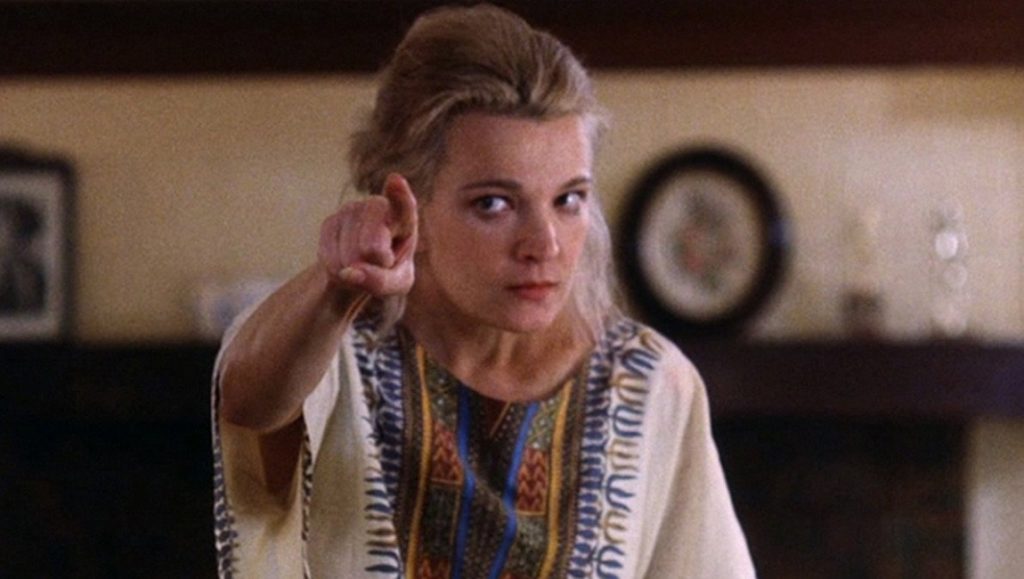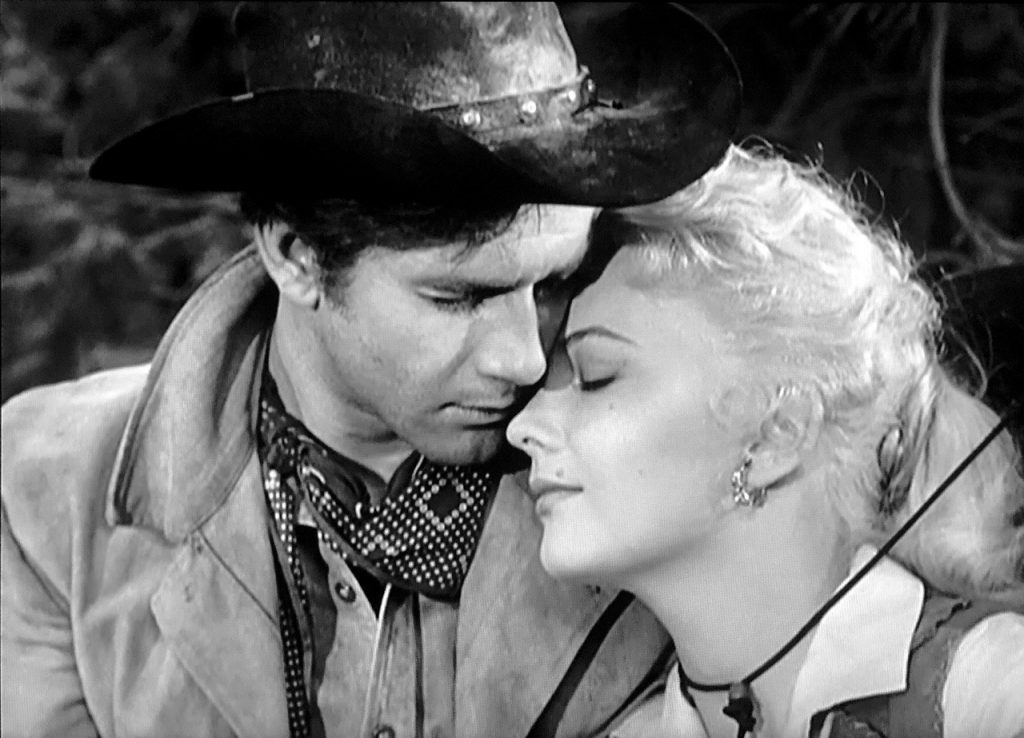C&I says hail and farewell to Gene Rowlands, the iconic actress with credits ranging from TV Westerns to indie films with husband John Cassavetes to The Notebook.
The C&I crew bids a fond farewell to Gena Rowlands, the iconic actress whose credits ranged from guest roles on TV Westerns to acclaimed collaborations with her husband, actor-filmmaker John Cassavetes, to a deeply affecting performance in the phenomenally popular 2004 romantic drama The Notebook.
The latter film, it should be noted, was directed by her son, director Nick Cassavetes, prompting admiration and amusement from her co-star, James Garner (pictured above with Rowlands). “Nicky’s extremely talented,” Garner told C&I in 2004, “and a really nice guy. He runs a great set. But it’s funny: My first scene was one with Gena, out on the porch. And when she came out on the porch, Nicky says, ‘OK – action, mom!’
“And let me tell you: That was a shock. I broke up laughing. I’ve never heard that before on a set: ‘Action, mom!’”
Rowlands, who passed away Wednesday at age 94 after a long battle with Alzheimer’s, began her decades-long career in film and television by guesting in several weekly TV series, including such Westerns as Laramie, Riverboat, Bonanza and The Virginian. She made her first significant impact with film critics and audiences as the supportive wife of a jailed cowboy in Lonely are The Brave, the classic 1962 neo-Western starring Kirk Douglas and Walter Matthau.
But Rowlands remains best known for her intense performances in movies directed by John Cassavetes, including two for which she received Academy Award nominations: A Woman Under the Influence (1968), which cast her as the psychologically fragile, mood-swinging wife of a sympathetic but stressed blue-collar worker (Peter Falk); and Gloria (1980), a change of pace for both Rowlands and Cassavetes, about a gangster’s moll who becomes violently protective of an orphaned boy marked for death.

Rowlands also starred in the drama that put Cassavetes on the map as an inspired and influential indie filmmaker: Faces (1968), in which she memorably played an upscale prostitute who briefly bonds with a discontented businessman (John Marley). Cassavetes later directed his wife in Minnie and Moskowitz (1971), Opening Night (1977) and Love Streams (1984), and co-starred with her twice in Burke’s Law, the 1963-66 series starring Gene Barry of Bat Masterson as a millionaire police captain, and an episode of Johnny Staccato, the 1959-60 show starring Cassavetes as private eye who moonlights as a jazz pianist.

“Gena’s point of view is totally different from mine,” Cassavetes said in an interview four years before his 1989 death. “But I think that’s great. God, if we agreed on everything — can you imagine? Just see us, walking through life, and we’re getting a little older, and people say, ‘Oh, they’re just alike! They agree on everything! If she says ‘blue,’ he says ‘blue.’ They really are together!’
“Well, if Gena says ‘green,’ I say ‘red!’ If I say ‘red,’ she says ‘blue.’ It’s like clockwork! We’re totally, diametrically opposed on everything. I admire the hell out of her, because this has led me into at least an understanding of the way a person with a totally different background, a totally different cultural understanding of life, feels and thinks. The beauty of working with her is that I think she’s a great actress. I think anybody working with her would know it.”

In a 2016 interview with Variety writer Bret Lang, Rowlands marveled at how her late husband had been able to write so many strong female roles for his films. “He didn’t even have a sister,” she said. “He liked women and he had a lot of sympathy for women. Things have gotten easier for some of us, but they weren’t always that way. We were at a disadvantage. He saw that.”
Her favorite of their films together? A Woman Under the Influence. “You were dealing with a woman who was a little wacky to begin with,” Rowlands said, “and she was obsessively in love with her husband. She got into such real trouble with her own psyche that she had a major nervous breakdown. I found it so touching. And Peter Falk was just great as this regular guy working for the city. He was so tender with her. Even though he couldn’t understand her, he loved her anyway.”
In that same interview, Rowlands expressed surprise, and gratitude, that The Notebook had left such a lasting impression on audiences. “I didn’t think it would have that kind of impact,” she said. “I think it was such a big hit because it was about the realization that love can last your whole life. You don’t see it depicted that way a lot. In most films you don’t get to see a story like that go from the beginning to the end with the possibility that love can be perhaps eternal.”
Rowlands other film credits include The Spiral Road (1962), Two-Minute Warning (1976), Tempest (1982), Another Woman (1988), Night on Earth (1981), Something to Talk About (1995) and Hope Floats (1998). She received Emmy Awards for playing the title role in the 1987 TV-movie biopic The Betty Ford Story, a starring role as a widow who discovers her late husband had gambled away their savings in Face of a Stranger (1992) and a supporting role as the mother of Uma Thurman in Hysterical Blindness (2002)
In 2015, Rowlands received an Honorary Academy Award in recognition of her life and legacy. A recognition, her many admirers agreed, that was long overdue.














